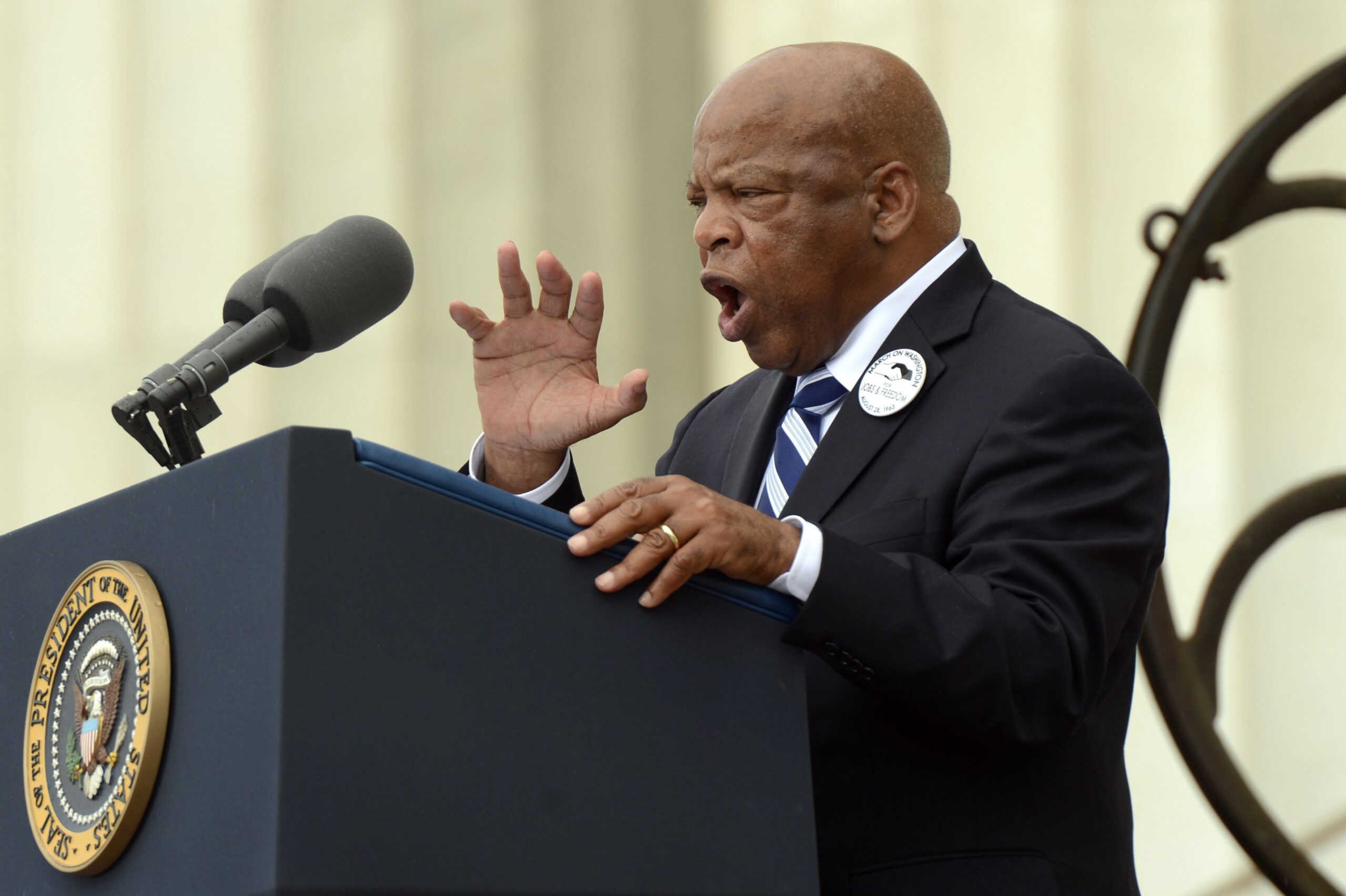Moments before standing in front of the Lincoln Memorial at the 1963 March on Washington, John Lewis frantically re-worked his remarks in response to organizers’ fears that his words were too incendiary. Among the many changes Lewis made, he replaced the line,
“We will march through the South, through the heart of Dixie, the way Sherman did. We shall pursue our own scorched earth policy and burn Jim Crow to the ground,”
Suggested Reading
with,
“We will march through the South, through the streets…But we will march with the spirit of love and with the spirit of dignity that we have shown here today.”
Lewis recognized that words can act as both a precursor and a permission structure for action, and chose his carefully. Now, as the world digests what we learned about a former president’s actions from the January 6 hearings, we are reminded of just how destructive the results can be when our leaders fail to demonstrate the same wisdom and restraint Lewis did that day. That is why we—one of us a former intern for John Lewis, the other a former speechwriter for President Biden—think it’s time for the nation to pay a lot more attention to the words that have so often preceded violence in this country. Leaders must recognize the power of their words to sow hope or hate; to defend institutions or diminish them.
Former President Trump was certainly not the first elected official whose reckless rhetoric inspired hatred, violence, and uprising. Rebecca Latimer Felton from Georgia was a white supremacist who was both the first woman and last slaveowner to serve in the U.S. Senate. In a speech on August 11, 1898, Felton called for as many Black men to be lynched as possible to protect white women from such “ravening beasts.”
“Lynch,” she exhorted those in the audience, “a thousand times a week if necessary.”
And lynch they did. Not long after she spoke those words, a mob in Coweta County, Georgia, tortured and executed Sam Hose, a Black man who had killed a white man in self defense and was falsely accused of raping the deceased’s wife. Felton, in response, compared Hose to a mad dog who needed to be put down, except that a mad dog was “more worthy of sympathy.”
Felton’s speech began to be reprinted in newspapers throughout the South—including in a Black-owned newspaper in Wilmington, North Carolina, that published a condemnation of her message. Within days, white supremacists rallied across the state. On November 10, a mob marched through Wilmington, overthrew the racially diverse local government, and torched many Black-owned homes and businesses—including the newspaper that had rebuked Felton’s speech. Felton praised what became known as the Wilmington Insurrection of November 1898, exclaiming that the publisher who criticized her speech “should be made to fear a lyncher’s rope.”
Luckily, the January 6 insurrectionists were not as successful in violently toppling a government as the Wilmington rioters were. But while they failed to overthrow our democracy, they succeeded in showing us just how tenuous our grasp on democracy is, and what can happen when our leaders misuse the power of their pulpit. Dangerous rhetoric doesn’t always directly lead to tragedies like the events of Nov. 10, 1898, or January 6, 2021. Still, it is time to recognize that the line between the language we hear from our leaders every day and the actions that flow from them is thinning.
One study found a link between anti-Muslim rhetoric from Donald Trump, a rise in anti-Muslim social media posts from his followers, and an increase in anti-Muslim hate crimes in the years following Trump’s ascendance. The Brookings Institution noted a similar rise in anti-AAPI hate crimes when President Trump began referring to COVID-19 as the “China virus.”
We no longer live under Jim Crow and the Trump presidency is over, but the risk of reckless rhetoric presaging violent actions— is still very much with us. The perpetrator of last month’s shooting in Buffalo left behind a manifesto replete with endorsements of the Great Replacement Theory, which has been popularized by, among others, the third ranking Republican in the U.S. House of Representatives. It may be diluted by distance, but there is blood on the hands of those who have spread this theory, and it is time for our leaders to recognize the deadly consequences of their words and those they choose to amplify.
There is a reason that incitement is not protected under the First Amendment. But even outside of the legal domain, if we can all recognize and condemn this type of speech, perhaps we can take a step towards preventing the damage that can come of it. In doing so, we can help mold our nation into the Beloved Community that John Lewis urged us to create.
Gevin Reynolds interned for the late Congressman John Lewis and is an incoming law student at Yale. His work has been published in the New York Daily News, Atlanta Journal-Constitution, and the Root.Jeff Nussbaum most recently served as a special assistant and senior speechwriter to President Joe Biden. He is the author of Undelivered: The Never-Heard Speeches that Would Have Rewritten History.
Straight From 
Sign up for our free daily newsletter.


